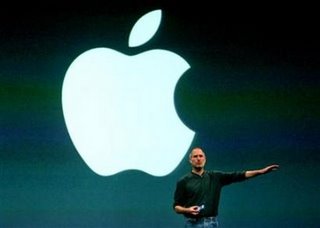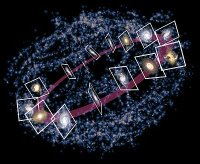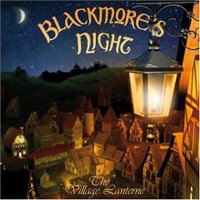Is the proton on diet?
 It seems that nothing stays the same: not even the 'constants' of physics. An experiment suggests that the mass ratio of two fundamental subatomic particles has decreased over the past 12 billion years, for no apparent reason.
It seems that nothing stays the same: not even the 'constants' of physics. An experiment suggests that the mass ratio of two fundamental subatomic particles has decreased over the past 12 billion years, for no apparent reason.The startling finding comes from a team of scientists who have calculated exactly how much heavier a proton is than an electron. For most purposes, it is about 1,836 times heavier. But dig down a few decimal places and the team claims that this value has changed over time.
The researchers admit that they are only about 99.7% sure of their result, which physicists reckon is a little better than 'evidence for' but not nearly an 'observation of' the effect. If confirmed, however, the discovery could rewrite our understanding of the forces that make our Universe tick.
This is not the first time physicists have suspected physical constants of inconstancy.
In 1937, the physicist Paul Dirac famously suggested that the strength of gravity could change over time. And arguments about the fine-structure constant have raged for years. The fine-structure constant measures the strength of the electromagnetic force that keeps electrons in place inside atoms and molecules.
Some physicists have argued that the equations describing our Universe allow for variance in the relative masses of a proton and electron. In fact, they have said, this value could theoretically vary more than does, and so might be easier to pin down.
To look for such variation, Wim Ubachs, a physicist from the Free University in Amsterdam, the Netherlands, and his colleagues studied how a cool gas of hydrogen molecules in their lab absorbed ultraviolet laser light. The exact frequencies of light that are absorbed by each hydrogen molecule (H2), which is made of two protons and two electrons, depend on the relative masses of these constituent particles.
Then they compared this result with observations of two clouds of hydrogen molecules about 12 billion light years away, which are illuminated from behind by distant quasars. Although the light changes frequency on its long journey through space, researchers at the European Southern Observatory in Chile were able to unpick what the original frequencies absorbed by the hydrogen were.
Ubachs' comparison suggests that over this vast timescale, which is most of the lifetime of the Universe, the proton-to-electron mass ratio has decreased by 0.002%. The scientists report their research in Physical Review Letters (Reinhold E. et al., Phys. Rev. Lett., 96, 151101, 2006).
Ubachs says that his team's laser measurements are hundreds of times more accurate than previous laboratory data. This improves their detection of the mass ratio effect by a factor of two to three.
"They've done the best job of anyone so far," agrees John Webb, a physicist at the University of New South Wales in Sydney, Australia, who has studied changes in both the proton-electron mass ratio and the fine-structure constant.
So what could be causing the ratio to change? Both Ubachs and Webb say that it is unlikely that protons are losing weight. Instead, some theories suggest that extra dimensions occupied by the particle might be changing shape.
Or perhaps it's a consequence of the speed of light slowing down, or general relativity behaving in odd ways. "We just don't know what the explanation is," Webb admits.
If Ubachs' finding is confirmed, it would be an "experimental foundation stone" for physics, says Webb.
Ubachs says that the observations could be improved or confirmed by looking at hydrogen clouds in the lab over a time period of, say, five years, but with a billion times greater precision. This would remove the difficulty of working out the precise wavelength of very dim light after it has passed through billions of light years of space.
But it could also remove the effect altogether. "It may be that it was only in an early epoch of the Universe that the value changed," suggests Ubachs.
Mark Peplow, Nature












